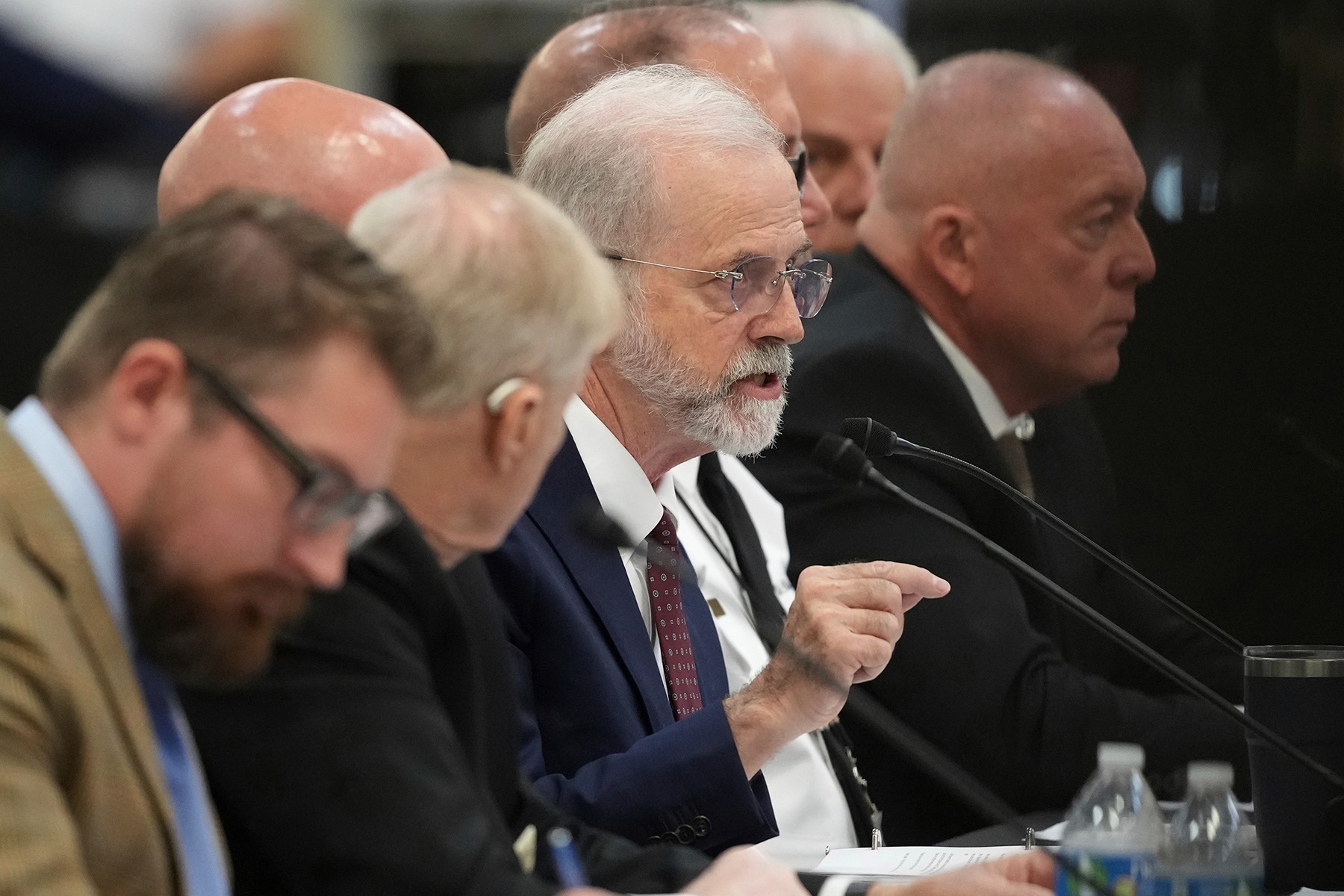Texas lawmakers convene in Kerrville to address flooding and future preparedness
Kerr County officials testified about the emergency response during the July 4 flash flood that killed 108 people across the county to state lawmakers during a legislative hearing in Kerrville on Thursday, with at least 200 people in attendance.
Lawmakers hosted the hearings as they consider ways to provide relief to victims and mitigate future disasters during the 30-day special session called by Gov. Greg Abbott.
“You didn’t come to listen to us, we came to listen to you,” said Texas Lt. Gov. Dan Patrick in the opening comments. “This is not the end, this is the beginning. We will pass bills dealing with the immediacy of the things we can address now.”
On July 4, Abbott was out of state, making Patrick the acting governor at that time. Patrick said he arrived in Kerrville as soon as possible on the day of the flooding.
House speaker Dustin Burrows was also in attendance at the hearing. Patrick noted that this could be the first time in Texas history that the leaders of two chambers of the Texas Legislature were present at a committee meeting.
“The two chambers do not come together for a hearing, but the magnitude of the situation warranted it,” Burrows said. “This is hopefully a testament for what we intend to do together in a collaborative fashion for this community.”
Kerr County Judge Rob Kelly, Sheriff Larry Leitha, Emergency Management Coordinator William “Dub” Thomas IV and Kerrville Mayor Joe Herring Jr. testified on the first panel, titled “Hill Country Leadership,” alongside other regional officials who managed the emergency response.
Kelly testified that he was in Travis County preparing for the holiday when the flood hit Kerr County the morning of July 4.
He said the county needs better alert systems, more staffing and training for first responders and better communication systems. He added that the Kerr County 911 system could not handle the emergency as some calls were picked up by dispatch in Seguin.
Thomas touched on his apparent absence during the catastrophic flooding on July 4, saying that he was not feeling well on July 2 and had approved time off for personal matters on July 3, although his illness kept him in bed.
Thomas did not take part in the two calls with TDEM on July 3 about the forecasted rain.
He also voiced concerns about the effectiveness of sirens as a flood warning system in an area that draws a lot of tourists during holidays like Independence Day, saying that visitors to Kerr County might not know what the sirens mean or how to appropriately respond.
Leitha has overseen the extensive search and recovery operation, which involved hundreds of personnel from state, federal and international agencies.
Communication became an issue during interoperability between first responder agencies that arrived to assist in the flood response.
Leitha testified that it took several days for each agency’s radios to be reprogrammed in order for these agencies to communicate with each other.
Herring has coordinated local response efforts while the city handled damaged infrastructure and displaced residents.
“We’re grieving, we’re shaken, but we are not broken,” Herring said. “Whether it’s a series of warning sirens or an automated data-driven alerting system or even a hybrid of both, we need solutions in place that will protect the public and save lives.”
Herring warned that the Guadalupe River will flood again, and he would like to see a flood warning system in place by next summer.
Kerrville City Manager Dalton Rice testified, saying that lacking broadband and cellphone service were also an issue as the initial reports of flooding first came in, particularly in West Kerr County, where the majority of destruction from the floodwaters happened.
The hearing also featured testimony from Dr. Bill Rector, the longtime president of the Upper Guadalupe River Authority’s board of directors, who was appointed by Abbott.
During the July 23 hearing in Austin, lawmakers from both parties grilled the UGRA’s general manager, Tara Bushnoe, about the agency’s decision to lower residents’ property taxes rather than upgrade its flood warning system, citing a report from the Houston Chronicle. A 2016 engineering study found Kerr County needed around $1 million to modernize the system.
Rector testified that the UGRA had been frustrated since 2016 in trying to implement a flood warning system and that the organization's mission is simply data-driven rather than part of a larger flood mitigation strategy.
This hearing comes as authorities have publicly released records and audio, providing new information about the escalating dangers and chaos in the early morning hours of the July 4 holiday across Kerr County.
This article was originally published in the Aug. 2, 2025 edition of the Kerrville Daily Times.

Post a comment